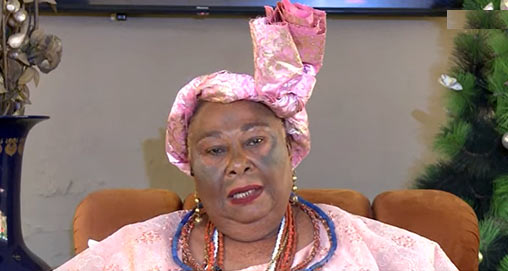Revocation of Property in Abuja: Lori-Ogbebor Cries Out Over Late Husband’s Property
In a heartfelt plea for justice, Chief Rita Lori-Ogbebor, a prominent rights activist, has expressed her outrage over the revocation of a property belonging to her late husband, Colonel Paul Ogbebor (retd.), in Abuja. The estate is located in the Life Camp area of the Federal Capital Territory (FCT). This situation has sparked a heated dispute that raises serious questions about land rights and government accountability. Therefore, Lori-Ogbebor has called on President Bola Tinubu to intervene and address what she describes as an injustice against her family and her late husband’s legacy.
The Controversy Unfolds
The controversy began when the Federal Capital Development Authority (FCDA) issued a quit notice to Paulosa Nigeria Limited on November 22, 2024. Shortly after this notice, on December 9, the property was reallocated to another entity. This swift action raised alarms about the legitimacy of such decisions. According to Lori-Ogbebor’s findings at the Corporate Affairs Commission (CAC), the new allocation went to a company linked to Kingsley Chinda, a three-time member of the House of Representatives and an associate of Nyesom Wike, the Minister of Federal Capital Territory.
“Every time they would say the file was with the Minister,” Lori-Ogbebor stated in an interview. “When Wike came on November 22, he sent a quit notice. The children were surprised; I couldn’t even imagine it.” This situation has left many questioning the motives behind these actions and whether they reflect a broader pattern of land grabbing in Abuja.
Colonel Ogbebor’s Legacy
Colonel Ogbebor was not just any military officer; he was a civil war hero and one of Nigeria’s first-generation army officers. His contributions to national development included significant infrastructure projects in Abuja during its formative years. “He served this country well,” Lori-Ogbebor emphasized. She asserted that her husband did not seize land but worked hard to develop it for future generations.
A Call for Justice
Lori-Ogbebor has gathered evidence showing that her family complied with all necessary regulations regarding their property. They made substantial payments towards ground rents and believed their ownership was secure. “Whatever it is they want us to pay again, the children will pay it now,” she declared, demonstrating her determination to protect her husband’s legacy.
Broader Implications
The implications of this case extend beyond personal loss; they touch on broader issues of property rights and governmental transparency in Nigeria. Land disputes are common in Abuja, where rapid urbanization leads to conflicts over ownership and usage rights. Thus, the Ogbebor family’s situation exemplifies how vulnerable citizens can find themselves caught in legal battles with powerful political figures who wield significant influence over land allocations.
A Growing Demand for Accountability
Lori-Ogbebor’s plea has resonated with many who view her fight as emblematic of a larger struggle against corruption and abuse of power within government institutions. “This is our country,” she lamented. “The revocation of lands in Abuja should be probed.” Her call for an investigation into their property’s revocation and reallocation underscores a growing demand for accountability from public officials.
Government Response
In response to these developments, members of the Senate have taken notice. They urged Minister Wike to halt any further demolition activities pending an investigation into the matter. Consequently, an ad hoc committee has been established to examine the legality and propriety of recent actions taken by the FCDA regarding land ownership disputes.
The Emotional Toll
The emotional toll on Lori-Ogbebor and her family is palpable as they navigate this distressing chapter. The fear of losing their home weighs heavily on them, especially considering Colonel Ogbebor’s enduring legacy as a builder of modern Abuja. “He didn’t bring any money back home,” Lori-Ogbebor reflected sadly. “The only legacy he has that bears his name is this estate.”

A Fight for Justice
As this story unfolds, it highlights critical questions about land rights in Nigeria—who truly owns land in Abuja? What protections exist for those who have contributed to its development? How can citizens hold their leaders accountable when faced with such injustices? Chief Rita Lori-Ogbebor’s fight is not just for her family’s property; it is a battle for fairness and recognition of those who have built their lives in service to their country.
As she awaits action from President Tinubu and other authorities, Lori-Ogbebor remains resolute in her commitment to seek justice for her late husband’s legacy and ensure that no other family faces similar hardships due to arbitrary governmental actions.

